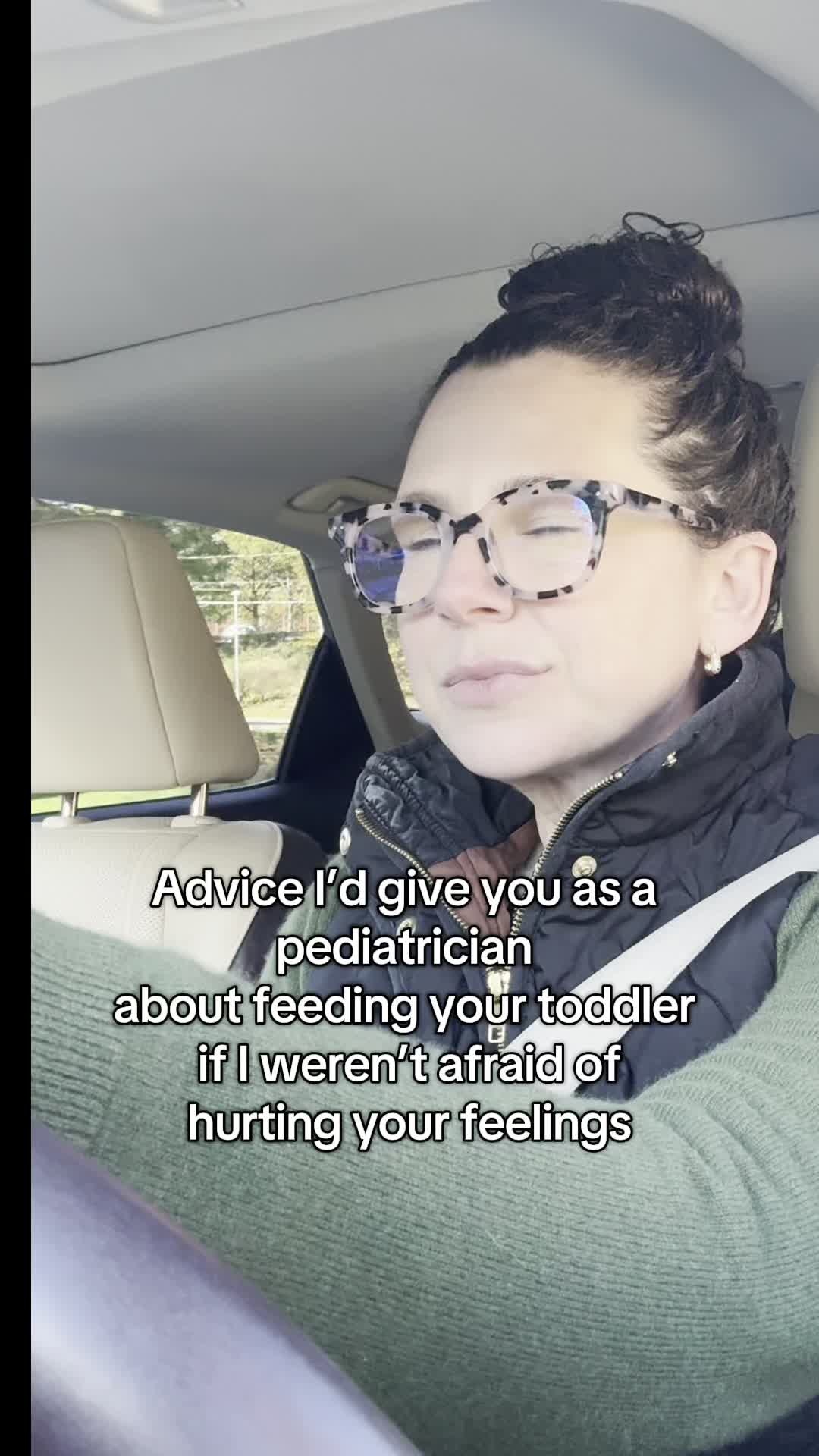1. There is no one right way to start solids. Purees. Baby led weaning. A mix of both. What matters is low pressure exposure and letting them learn at their pace. 2. Babies want to watch you and do what you do. Feeding is imitation and connection long before it is nutrition. Sit with them. Eat with them. Model curiosity. 3. Exposure counts. Not ounces. If they squish it, lick it, smear it through their hair, or drop it on the dog, their brain still learned something new. 4. Gagging is learning, not choking. It is the body practicing how to protect the airway. It feels scary to you. It is normal for them. 5. If everything they eat dissolves instantly, they are not learning to chew. Texture progression is developmental work. 6. Babies do not need bland. Food should taste like food. Herbs, spices, and flavor help them learn to like real meals later. 7. Allergies are prevented by exposure, not avoidance. Introduce allergenic foods like peanut butter, egg, yogurt and wheat early and often once they are ready for solids. Keep them in the rotation weekly. 8. Pouches are convenience items. Good for travel or chaos. Not the best way to teach chewing or exploring. 9. You do not need special baby food. You need the family meal in a safe form for their mouth. That means you have to actually eat meals too. 10. Learn choking prevention and safe cuts. Grapes sliced lengthwise. Hot dogs into strips. No round hard foods like whole nuts or raw carrots. Confidence changes the whole experience. 11. Feeding is not a performance review. They are not failing if they refuse the broccoli on day one. Familiarity leads to acceptance, not pressure. 12. Appetite swings start now. Some days it seems they have a wooden leg and devour everything. Other days they eat one pea and tap out. Both are normal. 13. Kids are unbelievably resilient. I once met a now-surgeon who lived on chicken fingers and white rice until middle school and is six foot five and brilliant. 14. In general, fed and loved is success. Skills build over years, not weeks. If feeding becomes very stressful or very limited, talk to your pediatrician. That is what we are here for.
♬ original sound – AdviceWithErin✨
@drleahrap 1. There is no one right way to start solids. Purees. Baby led weaning. A mix of both. What matters is low pressure exposure and letting them learn at their pace. 2. Babies want to watch you and do what you do. Feeding is imitation and connection long before it is nutrition. Sit with them. Eat with them. Model curiosity. 3. Exposure counts. Not ounces. If they squish it, lick it, smear it through their hair, or drop it on the dog, their brain still learned something new. 4. Gagging is learning, not choking. It is the body practicing how to protect the airway. It feels scary to you. It is normal for them. 5. If everything they eat dissolves instantly, they are not learning to chew. Texture progression is developmental work. 6. Babies do not need bland. Food should taste like food. Herbs, spices, and flavor help them learn to like real meals later. 7. Allergies are prevented by exposure, not avoidance. Introduce allergenic foods like peanut butter, egg, yogurt and wheat early and often once they are ready for solids. Keep them in the rotation weekly. 8. Pouches are convenience items. Good for travel or chaos. Not the best way to teach chewing or exploring. 9. You do not need special baby food. You need the family meal in a safe form for their mouth. That means you have to actually eat meals too. 10. Learn choking prevention and safe cuts. Grapes sliced lengthwise. Hot dogs into strips. No round hard foods like whole nuts or raw carrots. Confidence changes the whole experience. 11. Feeding is not a performance review. They are not failing if they refuse the broccoli on day one. Familiarity leads to acceptance, not pressure. 12. Appetite swings start now. Some days it seems they have a wooden leg and devour everything. Other days they eat one pea and tap out. Both are normal. 13. Kids are unbelievably resilient. I once met a now-surgeon who lived on chicken fingers and white rice until middle school and is six foot five and brilliant. 14. In general, fed and loved is success. Skills build over years, not weeks. If feeding becomes very stressful or very limited, talk to your pediatrician. That is what we are here for.

